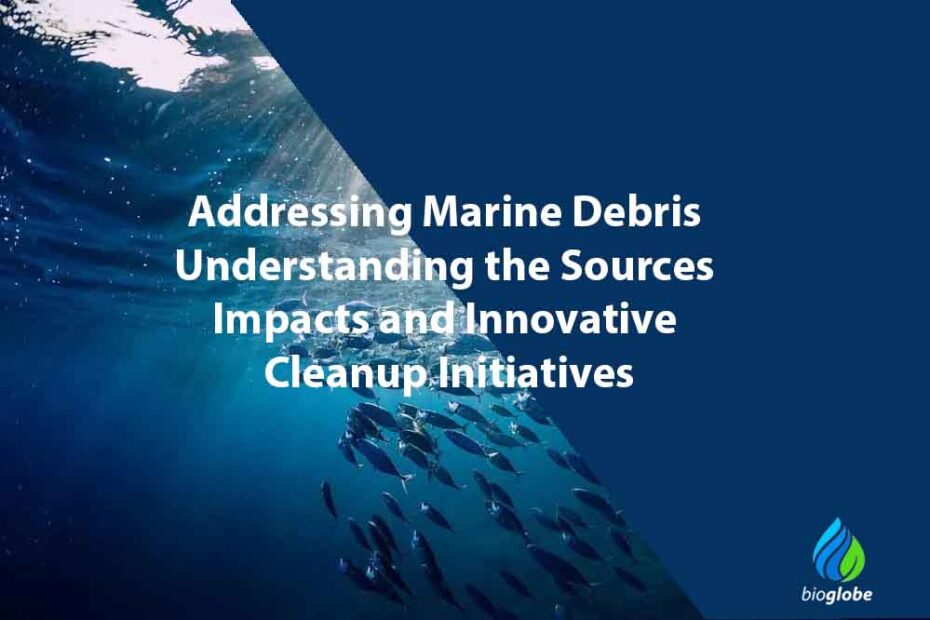This article explores the sources, impacts, and innovative cleanup initiatives aimed at tackling the pervasive issue of marine debris, including plastics and other waste materials.
Addressing Marine Debris: Understanding the Sources, Impacts, and Innovative Cleanup Initiatives
Introduction:
Marine debris is a critical issue that poses significant threats to our oceans, marine life, and ecosystems. It is crucial to address this problem and raise awareness about its sources, impacts, and the innovative cleanup initiatives that are being implemented worldwide. In this blog post, we will explore the causes of marine debris, examine its detrimental effects on the environment, and discuss some of the cutting-edge solutions and cleanup efforts that are making a positive difference.
I. The Sources of Marine Debris
Marine debris originates from various sources, both on land and at sea. It includes items such as plastic bags, bottles, fishing gear, and microplastics. Understanding the sources of marine debris is essential in order to effectively tackle the problem. Some of the key sources include:
– Land-based activities and improper waste management practices [[1](https://blog.hubspot.com/marketing/how-to-start-a-blog)]
– Ocean-based activities, including shipping, fishing, and offshore industries
– Natural disasters and weather events that contribute to the accumulation of debris in coastal areas
II. Impacts of Marine Debris on the Environment
The presence of marine debris has far-reaching consequences for the environment and marine ecosystems. It affects marine life, habitats, and overall ecological balance. Some of the impacts include:
– Entanglement and ingestion by marine animals, leading to injury, suffocation, and death
– Destruction of coral reefs and other fragile habitats
– Disruption of the food chain, as microplastics enter the marine food web
– Contamination of water bodies and the release of harmful chemicals
– Economic implications for industries such as tourism, fisheries, and coastal communities
III. Innovative Cleanup Initiatives
Fortunately, there are numerous innovative initiatives and technologies being developed and implemented to address the issue of marine debris. These initiatives aim to clean up existing debris, prevent future pollution, and promote sustainable practices. Here are some noteworthy examples:
– Ocean cleanup projects that deploy advanced technologies, such as large-scale passive cleanup systems and autonomous robots.
– Collaborative efforts between governments, NGOs, and private companies to organize beach cleanups and community engagement programs
– Recycling and waste management initiatives to reduce the amount of plastic waste entering the oceans
– Education and awareness campaigns to promote responsible consumption and highlight the importance of individual actions
Conclusion:
Addressing marine debris requires a multifaceted approach that involves understanding its sources, recognizing its impacts on the environment, and supporting innovative cleanup initiatives. By raising awareness about this issue and encouraging collective action, we can work towards a cleaner and healthier marine environment for present and future generations. Let us join hands in combating marine debris and preserving the beauty and biodiversity of our oceans.
Questions:
1. What are the main sources of marine debris?
Marine debris originates from various sources, both on land and at sea. Some of the key sources include land-based activities with improper waste management practices, ocean-based activities like shipping, fishing, and offshore industries, as well as natural disasters and weather events that contribute to the accumulation of debris in coastal areas. [[1](https://blog.hubspot.com/marketing/how-to-start-a-blog)]
2. What are the impacts of marine debris on the environment?
The presence of marine debris has significant consequences for the environment and marine ecosystems. It leads to entanglement and ingestion by marine animals, causing injury, suffocation, and death. Marine debris also destroys coral reefs and other fragile habitats, disrupts the food chain as microplastics enter the marine food web, contaminates water bodies, releases harmful chemicals, and has economic implications for industries such as tourism, fisheries, and coastal communities.
3. What innovative cleanup initiatives are being implemented to address marine debris?
Several innovative initiatives and technologies are being developed and implemented to tackle marine debris. These include ocean cleanup projects that utilize advanced technologies such as large-scale passive cleanup systems and autonomous robots. Collaborative efforts between governments, NGOs, and private companies organize beach cleanups and community engagement programs. Recycling and waste management initiatives aim to reduce the amount of plastic waste entering the oceans, and education and awareness campaigns promote responsible consumption and individual actions. [[1](https://blog.hubspot.com/marketing/how-to-start-a-blog)]
4. How does marine debris impact marine life?
Marine debris poses a significant threat to marine life. It can lead to entanglement of marine animals in items such as fishing gear, causing injury and even death. Marine animals may also mistakenly ingest debris, which can lead to digestive issues, blockages, and further harm. The presence of microplastics in the marine food web can disrupt the balance of ecosystems and impact the overall health of marine organisms.
5. Why is it important to address the issue of marine debris?
Addressing marine debris is crucial to protect our oceans, marine life, and ecosystems. It helps maintain the health and balance of marine ecosystems, preserves biodiversity, and safeguards the livelihoods of coastal communities that rely on healthy oceans. Furthermore, reducing marine debris contributes to the overall health of the planet, as the oceans play a vital role in regulating climate and providing essential resources.


